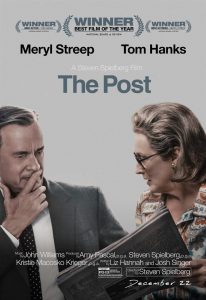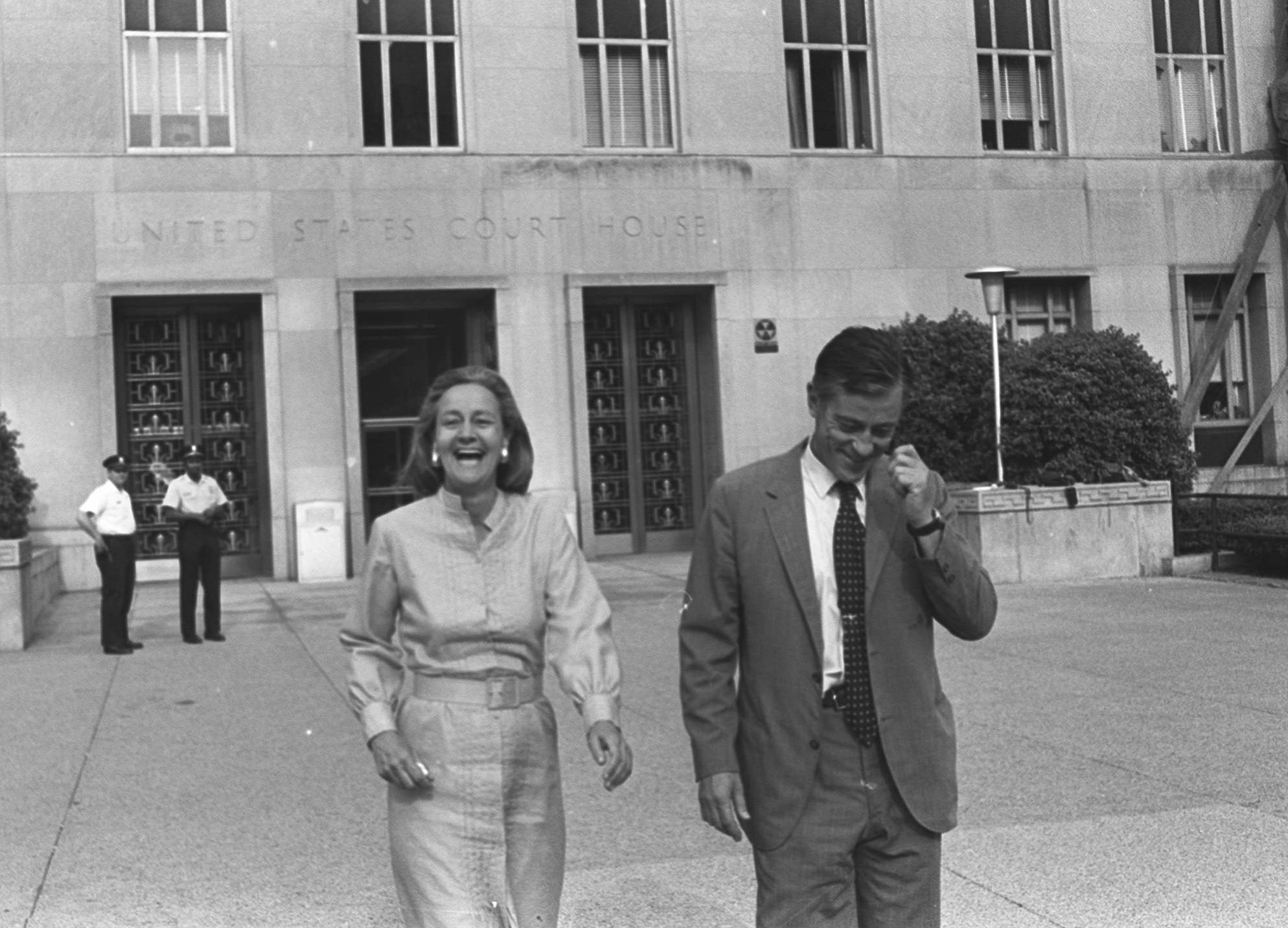Picture it: Two elite newspapers with huge national influence going head-to-head to report on one of the biggest scandals in American history and fight to exercise their right of the First Amendment. Then, throw in powerhouse actors Tom Hanks and Meryl Streep directed by Steven Spielberg. What do you get? “The Post,” a journalist’s dream movie about the 1971 publication of the top-secret information in the Pentagon Papers published by the Washington Post (the Post).
The Pentagon Papers were a 47-volume Department of Defense study on the Vietnam War that exposed just how much lying and manipulation the government was using to deceive the American public about what was actually going on in the war. While the New York Times already had possession of the Pentagon Papers and had written a series of articles based on the study, the government temporarily banned them from publishing any further stories about it.
While that wasn’t so good for the New York Times, the ban gave way for the Post to gain a small window of time to jump on the story themselves despite President Nixon and his administration’s efforts to keep them from doing so.
[su_youtube url=”https://www.youtube.com/watch?v=nrXlY6gzTTM”]
In the film “The Post,” Hanks plays the brusque and brilliant Post executive editor Ben Bradlee and Streep portrays the strong-willed, and now infamous, Post publisher Katharine Graham. Together, they form an unstoppable team to get ahold of and publish the whopping 3,000 pages that would not only change America’s view on the Presidency and the nature of the Vietnam War, but also how newspapers could publish classified materials even when they went against our government.
“The Post” is a great film for anybody to go see if they want a little history lesson on the Vietnam War and the Pentagon Papers, if they love Tom Hanks and Meryl Streep (which is basically everybody) or just love a good ole fashioned drama about the corruption of American politics. However, it is a crucial movie for any aspiring journalist to go see right now just like many other journalism films that came before it, such as “Spotlight” and “All the President’s Men.”
Why you ask? Because it shows how determination, good journalistic skills and fighting for what you believe in as a journalist are crucial in keeping the press’s First Amendment right to expose the truth at any cost. Despite all of the government’s efforts to keep the Pentagon Papers out of the press, the team at the Washington Post didn’t listen and didn’t give in, so they could deliver the truth to the people.
First off, this is portrayed with impeccable taste by Meryl Streep. Streep’s character, Katharine Graham, gains control over the newspaper after the death of her husband and is seen by many as someone who only follows the orders of the men in the newsroom. As the film goes on, however, the decision to publish the papers lies on her shoulders and she transforms from a demure socialite to a hard-nosed newswoman. Streep’s portrayal of Graham not only shows the strength and determination you need to have as a reporter, but also the willpower it takes to make a tough decision for the betterment of your readers.
And Tom Hanks’ character, Ben Bradlee, doesn’t shy away from the fight against the Nixon-led government either. Bradlee is exactly what an editor should be, which is decisive, brave and inspiring to his team of writers and aspiring editors should take note if you want to make it as an editor at any publication, print or online.

Both Bradlee and Graham show the heart and ruthless determination that they needed to beat their rival paper to finish publishing the most controversial and shocking documents the country has ever seen. And, to top it off, they are doing it while also setting a precedent that has allowed every generation of journalists that have come after them the freedom to go against the government and the status quo for the betterment of society.
Without the events in this movie, the events in “All the President’s Men” and “Spotlight” would not have taken place. Without the courage of Bradlee and Graham, the Post’s very own reporters, Carl Bernstein and Bob Woodward, never would have had the backing to expose the Watergate scandal, which only came a year later.
Fast forward about 30 years and the Spotlight team at the Boston Globe who uncovered the sexual abuse in the Catholic Church. While it was extremely difficult for them to get survivors and church officials to talk, they had the full backing of the newspaper and they didn’t have the national government breathing down their necks.
The controversy surrounding the publishing of the Pentagon Papers ruffles everybody’s feathers all the way up to the top of the government food chain and legal action was taken. While The New York Times managed to publish a few of the papers, the Department of Justice issues a temporary restraining order against any further publication. Why? Because it was seen as harmful to national security, which is just government code for: “We don’t want people to see how badly we messed up.”
Now, of course, the Times and the Washington Post had to fight back, which is chronicled in the movie. In the famous case of New York Times Co. v. United States, the Times and the Washington Post teamed up and the Supreme Court ruled that the government failed to prove harm to national security, and the publication of the papers was legal under the First Amendment’s protection of freedom of the press.
After that ruling, every newspaper in the country was allowed to publish the portions that the Times had not already published. That included how numerous Presidents, from Truman to Nixon, had all misled the public about the degree of America’s involvement in the war.
While these papers came out at a time when Americans were already skeptical about the war, the Supreme Court took the press’ side and gave them the power to decide what to publish with little government influence as long as it’s critical to public opinion. Imagine living in a society where the press doesn’t get the freedom to speak out against the government and put them in line when they mess up on such a high level. Without the publishing of the Pentagon Papers and without the courage and great journalistic skills of the not only the team at the Washington Post, but also at the Times, we wouldn’t have that freedom today.

















